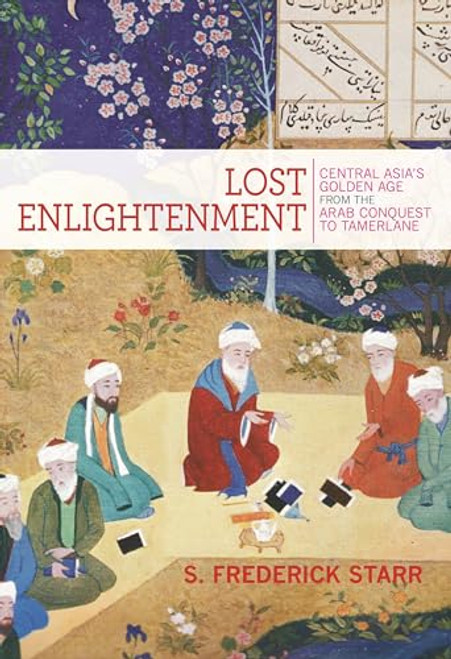The forgotten story of Central Asia's enlightenmentits rise, fall, and enduring legacy In this sweeping and richly illustrated history, S. Frederick Starr tells the fascinating but largely unknown story of Central Asia's medieval enlightenment through the eventful lives and astonishing accomplishments of its greatest mindsremarkable figures who built a bridge to the modern world. Because nearly all of these figures wrote in Arabic, they were long assumed to have been Arabs. In fact, they were from Central Asiadrawn from the Persianate and Turkic peoples of a region that today extends from Kazakhstan southward through Afghanistan, and from the easternmost province of Iran through Xinjiang, China. Lost Enlightenment recounts how, between the years 800 and 1200, Central Asia led the world in trade and economic development, the size and sophistication of its cities, the refinement of its arts, and, above all, in the advancement of knowledge in many fields. Central Asians achieved signal breakthroughs in astronomy, mathematics, geology, medicine, chemistry, music, social science, philosophy, and theology, among other subjects. They gave algebra its name, calculated the earth's diameter with unprecedented precision, wrote the books that later defined European medicine, and penned some of the world's greatest poetry. One scholar, working in Afghanistan, even predicted the existence of North and South Americafive centuries before Columbus. Rarely in history has a more impressive group of polymaths appeared at one place and time. No wonder that their writings influenced European culture from the time of St. Thomas Aquinas down to the scientific revolution, and had a similarly deep impact in India and much of Asia. Lost Enlightenment chronicles this forgotten age of achievement, seeks to explain its rise, and explores the competing theories about the cause of its eventual demise. Informed by the latest scholarship yet written in a lively and accessible style, this is a book that will surprise general readers and specialists alike.
Lost Enlightenment: Central Asia's Golden Age from the Arab Conquest to Tamerlane
Princeton University Press
MSRP:
Was:
Now:
$19.68 - $29.86
(You save
)
(No reviews yet)
Write a Review

Write a Review

Princeton University Press
Lost Enlightenment: Central Asia's Golden Age from the Arab Conquest to Tamerlane
- SKU:
- UPC:
- 9780691165851
- Maximum Purchase:
- 2 units
- Binding:
- Paperback
- Publication Date:
- 6/2/2015
- Release Date:
- 6/2/2015
- Author:
- Starr, S. Frederick
- Language:
- English: Published; English: Original Language; English
- Pages:
- 680

Brand: Cambridge University Press
A History of Egypt: From the Arab Conquest to the Present
MSRP:
Was:
Now:
$13.98 - $47.30

Lost Cities of China, Central Asia and India (The Lost City Series)
MSRP:
Was:
Now:
$15.73 - $44.85

imusti
The History of Central Asia: The Age of the Steppe Warriors
MSRP:
Was:
Now:
$112.45 - $215.62

John Philip Jenkins
The Lost History of Christianity: The Thousand-Year Golden Age of the Church in the Middle East, Africa, and Asia--and How It Died
MSRP:
Was:
Now:
$14.89 - $21.77

Brand: Tarcher
Memories and Visions of Paradise: Exploring the Universal Myth of a Lost Golden Age
MSRP:
Was:
Now:
$18.84 - $61.18

Brand: Duke University Press Books
From Enlightenment to Revolution
MSRP:
Was:
Now:
$71.41 - $300.00

Empire: A Novel of the Golden Age (The Golden Age, 2)
MSRP:
Was:
Now:
$14.22 - $22.90
!


